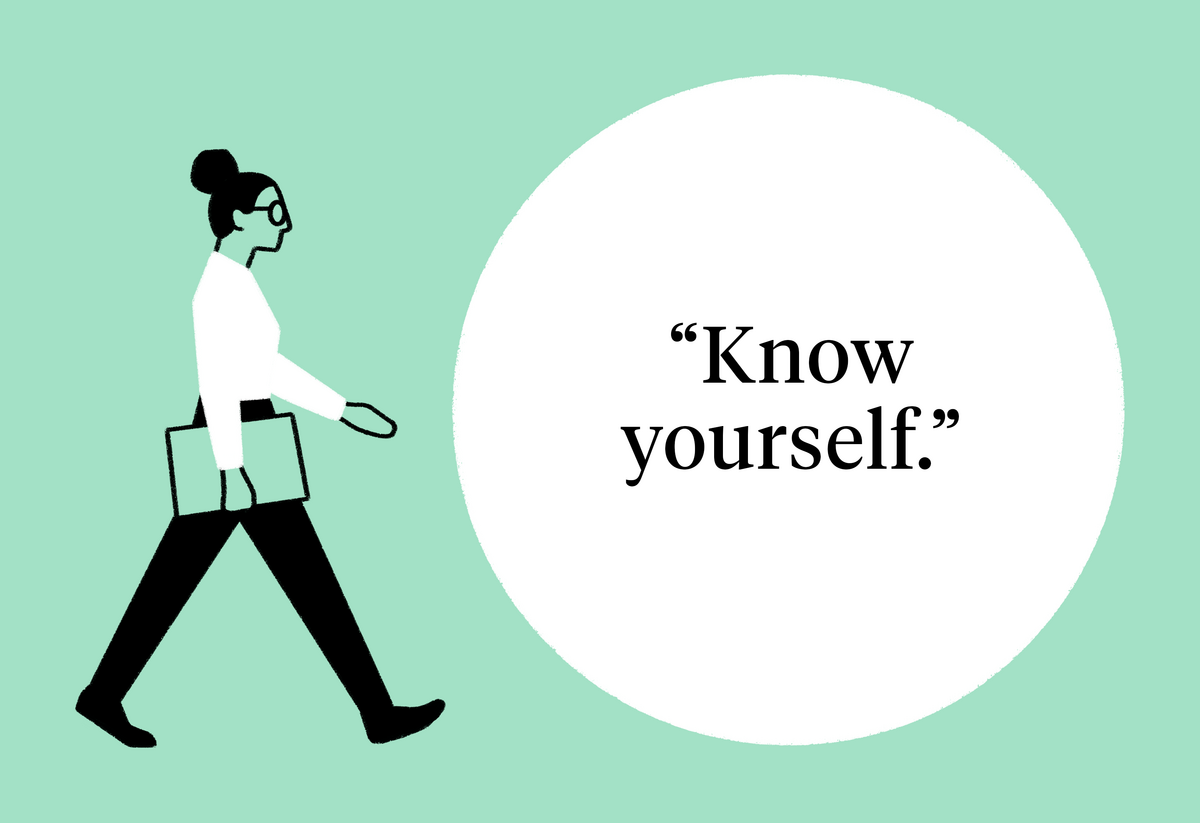Leadership Careers Oct 28, 2024
Podcast: How to Grow as a Leader without Burning Yourself Out
In this episode of The Insightful Leader, a former president at Kraft Foods explains why “sometimes just working harder is a complete waste of time.”

Sanjay Khosla often coaches people who want to hone their leadership chops, but can’t find the time; productivity demands, a reactive work culture, back-to-back meetings, and piles of urgent emails make sure of it.
But Khosla, an executive coach and adjunct professor at Kellogg, says professional development needn’t elude them—or you.
In this episode of The Insightful Leader, Khosla helps us forge a path forward.
Podcast Transcript
Laura PAVIN: Welcome to The Insightful Leader. I’m Laura Pavin.
I’ve got a couple of leadership quotes for you.
“Nobody ever changed the world on 40 hours a week.” Elon Musk said that.
“Work like there is someone working 24 hours a day to take it all away from you.” Mark Cuban said that.
They’re the kind of things you can imagine slapped across a photo of wolves—or an image of Mount Everest—hung up in some executive’s office. Maybe they’re in your office.
But I bring them up because I think they—and others like them—reflect this common belief in our culture: that you must run yourself into the ground if you want to get ahead at work.
Sanjay Khosla, the former president of Kraft Foods International, has a different perspective.
Sanjay KHOSLA: Sometimes just working harder is a complete waste of time.
PAVIN: These days, Khosla is a senior fellow and adjunct professor at Kellogg, and he’s an executive coach. And he says that reaching your professional goals—whether it’s just about taking on a few new responsibilities or making the jump to CEO—it can be hard, yeah. But it shouldn’t mean tearing all your hair out.
And yet, he sees it all the time with the people he coaches. In fact, things have been worse in recent years.
KHOSLA: What we were finding is actually a lot of people I’m coaching right now, were going through a phase of being just overwhelmed at work, stressed out, back-to-back meetings, zoom calls, moving out of Covid in this hybrid game which is very new.
PAVIN: To Khosla, it felt like everyone was doing more work instead of rethinking how they worked. So he devised some tips for his clients: advice for how to grow as a leader—or just grow in your career, period—without burning yourself out in the process.
And today, he’s going to share that with us.
That’s next.
…
PAVIN: Okay, so Khosla says that if you want to get ahead at work, if you want to be the chief marketing officer, or you just want to make a career pivot, or even just show your boss that you’re ready for more responsibility, you should first think about what needs to change for you to get there.
And to do that, you must turn your attention inward.
KHOSLA: So that was the first thing. Just to know yourself, understand what excites you and what, so you get the context. Just, what are you good at? What are you not so good at?
PAVIN: Know yourself. Think about where you want to end up professionally, and consider that against what you’re good at. What you’re not good at. What irks you. What you’re willing to compromise on. Where you need more experience. It’ll help you figure out if your goal is realistic or needs some adjusting. It’ll help you figure out, in other words, where exactly you need to grow.
Of course, we all have blindspots about ourselves. Which is why Khosla says you should also talk to your colleagues about this stuff. What do they think you’re better and weaker at? Consider a 360-degree feedback survey. Or some other structured form of feedback that anonymizes responses. It makes it easier for people to be honest with you.
One of Khosla’s clients, we’ll call her Maya, wanted to make the leap from being a computer scientist to the chief digital officer for her company.
KHOSLA: What her reviews showed that, well, she herself called herself a geek or a nerd, and she’s just so much into the technical stuff and she was lacking business appreciation and really no customer contact.
PAVIN (to KHOSLA): That’s got to be illuminating and take a lot of humility probably for her to ingest what people around her thought about her.
KHOSLA: Oh yeah, absolutely. But at the end of it, it’s kind of helpful to be pretty transparent about these things as to what do people think? And many of these surveys are just anonymous, so you don’t know who did what, but it’s enough of a sample to know that there’s themes.
PAVIN: If anonymous surveys don’t feel like the right fit for your workplace, face-to-face conversations are probably enough to get some sense of how people see you.
The answers might feel bad to hear, by the way. Like, who wants to hear that they’re forgetful or that they lack business acumen? But just remember that you can’t improve if you don’t know there’s a problem.
...
PAVIN: Alright, so you know where your biggest growth opportunities are. You’ve done some reflecting, and others have done some reflecting, and you’ve figured out what needs to change before you can move on.
Khosla says now it’s time to get out your calendar.
KHOSLA: And typically what we do is just take the previous six months and figure out, what are the five things you want to focus on in the next six months?
PAVIN: It’s time to pick some focus areas, things you need to change to get you closer to your goal. You’ll get at that by taking stock of how you spent the last six months and then deciding what was a good use of my time? Where did I potentially waste time? And what needs to change?
Like, if you know that, in order to grow, you need more experience with business strategy, but you spent all of December on the minutia, delegating will probably be a good focus for you going forward. So take stock of the past, and pick a handful of things that need adjusting going forward.
And I do mean just a handful.
KHOSLA: And we typically call that the five-finger rule. There’s only five things anyone can do at any point of time, so what are the five things you want to really focus on?
PAVIN: Tackle things in chunks to keep things manageable. Some steps are going to be harder than you think, and you’re probably going to need time to adjust. Like, Khosla had a client who did need to do more delegating.
KHOSLA: And she found very, very difficult. “What do you mean? But I kind of know the stuff.” But I said, “you have a team. Let them go. Let it go.“
PAVIN: It’s a common scenario: worker likes their work; worker gets good at their work; worker is ready to move up; but doing so means they can’t do that work in the same way. That’s an adjustment.
If you’re in the same scenario right now, by the way, you might be curious to know how that worked out for Khosla’s client.
KHOSLA: Well, it was difficult, but what surprised her was that some of the stuff that she was letting go of, people were actually doing a better job than she could do. And that—she was surprised.
PAVIN: It was hard, but, with more time on her hands, she was able to work on building and mastering those new skills. So, the discomfort was worth it.
Another pointer to avoid overwhelming yourself is to make your list very specific. If you’re looking to strike a healthier balance between work and life, for instance, really try to think through what a healthier balance would look like. Khosla had a client who told him she wanted to spend more time with her kids. And even that wasn’t specific enough.
KHOSLA: I said, what does that mean? She said, I need to put them to bed every evening, and I need to pick them up from school. And with the hybrid working, she could possibly do that not every day, but perhaps two, three times a week. Just pick them up at three o’clock from school.
PAVIN: Knowing exactly what “spending more time with her kids” meant made it easier to know what success looked like.
…
PAVIN: There is one more piece to all of this. Think of it as an accelerant for all the groundwork you just laid. That piece is people. Khosla calls it your circle of influence.
KHOSLA: It’s different from networking. It’s just understanding who can help you succeed.
PAVIN: A circle of influence is basically higher-level managers that can match you with the right opportunities to grow. If you need more marketing experience, maybe it’s the marketing director. Need to sharpen your technical skills? Maybe the product manager can help you with that. Could your boss help you reach any goals? Think about it all!
One of Khosla’s clients needed to build up her sales chops, and she got a sales director to help her. Here’s how that took shape.
KHOSLA: She speaks to him on a Zoom call once a month. So one-hour call and she asked him, do you mind if we can set this up? Would you mentor me? Would you help me? He likes it, and he likes the coaching thing, helping her out.
PAVIN: This actually led to other opportunities.
KHOSLA: He’s the one who’s actually puts her on projects with customers: “Hey, we’ve got this pitch coming up. I think you’d be really great. Would you like to go?” And she said, “Me? I thought initially it was just training and exposure.” “No, why don’t you be part of the team?“
PAVIN: The point is, it’s hard to get where you’re going alone. So, take a look around, maybe scour your org chart, and consider who can help you get more experience. Starting up this relationship doesn’t have to be hard, by the way. Khosla says you can reach out and pretty much just put it all out on the table for them.
KHOSLA: You actually ask, say, “Hey, I really would like that. Tell me what I need to do to get it, and what development would I need? How could I grow, et cetera.” If you don’t ask, you don’t get.
PAVIN: Set up a meeting. See what they can help you do. Maybe set up recurring meetings to check back in with them.
Khosla says your circle doesn’t have to be limited to your company, either. It could include external people. People who can keep an ear to the ground for you. Help you know your worth outside of your company.
This is something Khosla has personally had to do. He was involved when Kraft bought Cadbury—the sweets brand that makes the eggs. He remembers how crazy things got.
KHOSLA: I was running around all over the world, spending 20 days a month in different cities, countries. And the acquisition went very well, and life was good and things. But there was a point coming there when I used to wake up in some place and I don’t know where, I’d woken up at three o’clock in the morning and I said, ah, this is not sustainable.
PAVIN: He was traveling constantly, and feeling really spent. He was working with an executive coach outside of his org at the time. Because even people seemingly at the top of their game can still want to learn and grow in their careers.
KHOSLA: And my coach is the one who told me to actually look for creating options opening doors. And I said, “but this is all. I only know this. I don’t know anything else.” And he’s the one who actually encouraged me to look at teaching, for example, or writing a book. And I said, me writing a book is a bit of a joke. I mean, I don’t even know how to write emails. Most of my emails are simply noted or thank you or goodbye or whatever. Yeah, I mean just the fact of creating options. We wrote a book that came about, and then people helped me get to that, and then joined Northwestern University as initially I wasn’t sure because teaching—never taught before—and now it’s been almost 10 years, and it’s one of the best jobs in my life.
PAVIN: The point was to keep his options open, so he could easily pivot if he wanted to. If it weren’t for his coach, Khosla might not have ever considered writing a book. Or teaching. But of course, he left Kraft, and here he is, doing those things.
…
PAVIN: So if you have found yourself in a situation where you’re traveling constantly, left with no time for your family or any outside interests, and you’re wondering how you can possibly take a step forward without driving yourself a little nuts? Take a step back. Think about who you are, and where you’re trying to go before you make any other moves. Then look at your calendar. Are you saying “yes” to too many things that won’t help you grow? Make long- and short-term goals, and use those to prioritize a handful of things you can work on now and then later. And finally, have a set of people who can help you get that professional development you’re looking for and who can keep an eye out for you outside of your main gig. There could be other, better opportunities that had never crossed your mind before, and suddenly, you’ve got someone to champion you taking those next steps.
So that’s Khosla’s crash course on how to grow as a leader without pulling all your hair out. And look, it probably sounds simple, but we know that it isn’t. You’re going to fall on your face.
We all do.
KHOSLA: You go through tough times. And I’ve had so many mistakes and had so many failures over the years. And I continue to make pretty stupid mistakes.
PAVIN: But, he says, if you’re smart about it: you will always learn more from failure.
[CREDITS]
PAVIN: This episode of The Insightful Leader was written by Ian Mandt and edited by Laura Pavin and Jess Love. It was produced by the Kellogg Insight team, which also includes Fred Schmalz, Abraham Kim, Maja Kos, and Blake Goble. It was mixed by Ben Kruse (CROOZ). Special thanks to Sanjay Khosla. As a reminder, you can find us on iTunes, Spotify, or our website. If you like this show, please leave us a review or rating. That helps new listeners find us.


